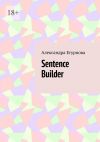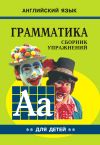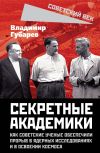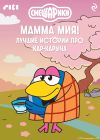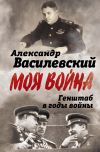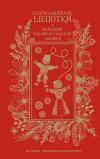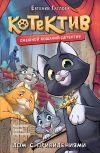
Автор книги: Анастасия Затонская
Жанр: Языкознание, Наука и Образование
Возрастные ограничения: +16
сообщить о неприемлемом содержимом
Текущая страница: 1 (всего у книги 3 страниц) [доступный отрывок для чтения: 1 страниц]
Сборник упражнений по грамматике английского языка. Продвинутый уровень
Анастасия Станиславовна Затонская
© Анастасия Станиславовна Затонская, 2017
ISBN 978-5-4485-2913-9
Создано в интеллектуальной издательской системе Ridero
Данный сборник представляет собой грамматические упражнения к лексическому материалу работы Гладкиной И. В. «Творческий импульс в играх и дискуссиях».
Сборник упражнений состоит из десяти параграфов и содержит обширный грамматический материал. Каждый параграф ориентирован на закрепление изучаемого грамматического явления, развивает умение выбирать правильные грамматические конструкции и содержит упражнения на самостоятельную работу учащихся (трансформационные, упражнения на перевод и речевые упражнения). Логика последовательности упражнений соответствует последовательности изучения грамматического материала: за трансформационными / подстановочными упражнениями следуют задания на перевод, после которых учащимся предлагается ряд упражнений на отработку грамматической конструкции в речевых / коммуникативных ситуациях. Упражнения в начале параграфа содержат сжато изложенное правило, помогающее учащимся эффективнее выполнять задание. В заданиях к речевым упражнениям включены уже не правила, а «элементы ситуаций», которые помогают учащимся определить, какое грамматическое явление следует использовать в данном случае.
Цитаты, оформленные в виде иллюстраций, позаимствованы с сайтов Grammarly Cards, Some e-cards, Your e-cards. Авторские и смежные права на элементы иллюстраций принадлежат их законным владельцам.
Свои комментарии и пожелания можно направлять по адресу электронной почты Anastasiaz@inbox.ru.

Unit 1
Grammar: revising simple tenses (Present Simple Tense, Past Simple Tense, Present Progressive Tense, Past Progressive Tense)
Lexical topic: Personal Qualities. Appearance
Ex. 1. Complete the sentences. Do not forget about the difference in the Tenses: if you speak about something typical or regular, you should use the Present Simple Tense; if you speak about something untypical or going on at the moment of speech, you should the Present Progressive Tense.
1. He (to be) a very serious person, and he (to prefer) …. 2. What is wrong with Ann? She (to be) so passive today! – I (not to know) even how to explain it. Generally she (to be) very energetic and active. Probably …. 3. Kate is so industrious! Even now, when everybody (to enjoy) their holidays, she (to do) her home task. – It is quite possible that ….4. I need your help! You (to be) the most educated and broad-minded person among us. – Ok. What’s the problem? – My parents (to come) back from their vacation today and I (not to know) how to explain…. 5. I think you (to be) very careless. – What (to make) you think that? – Only a careless or stupid person (to leave) the house without an umbrella when it (to rain) cats and dogs like now. – (not to be) so tactless! I’m just in a hurry. I must ….6. How can you be so narrow-minded? He just (to use) you selfishly all the time, and you (to treat) him as the most respectable person in the world! – You (to be) jealous now! You just ….
Ex. 2. Translate into English. The rule given in exercise 1 may help you.
1. Привет! Что ты здесь делаешь? – Я жду своего друга. К сожалению, он не слишком обязательный. – Ты часто его ждешь? – Да, довольно-таки. – Твоему терпению можно позавидовать. 2. Два человека едут в автобусе. Один спрашивает другого: «Вы идете сегодня на лекцию мистера Брауна? – Да, иду. – отвечает другой. – Лучше не ходите. Я слышал, что он очень ограниченный и скучный лектор. – Не могу. Я – Браун.» 3. «Ах, какой приятный человек! Он такой скромный, терпеливый, искренний! – Не будь такой наивной: он ведет себя так, только когда ему что-то нужно. На самом деле он эгоистичный, хвастливый и хитрый.» 4. «Что с тобой сегодня? Ты всегда такая спокойная, бесстрастная, рассудительная, уравновешенная, а сегодня тебя как подменили – эмоциональная, нетерпеливая! – Я просто хочу расслабиться для разнообразия. Неужели тебе не хочется чего-нибудь новенького?»
Ex. 3. Insert the verb in the proper form. Remember that you should use the Past Simple Tense, if you want to state the fact, which took place in the past, and the Past Progressive Tense, if you want to underline that the action was in progress when another event happened or if it was thought of as a continual process. Analyze use of the Present Continuous Tense.
1. Hello! Yesterday I (to meet) Kate! – Really? How she (to look) like? – Oh, she (to become) a real beauty. – But she probably (to remain) narrow-minded and uneducated as earlier. – You are being not very polite and kind today, you know. 2. Let’s invite Nick to the party. – Don’t even think of that. When I (to come) to his place last Sunday he (to do) his homework and (not to turn) his head to chatter with me. I hate such unemotional impassionate people who are constantly studying. 3. How (to be) your visit to the theatre with Ann yesterday? – Awful! When I (to come) at her place she still (to dye) her hair. Then she (to comb) her hair, (to polish) her nails, (to do) her make-up and even (to measure) her waist to improve her mood. And imagine – she (to grumble) that I (to be) too impatient!
Ex. 4. Translate into English. The rule given in exercise 3 may help you.
1. Знаешь, я вчера встретил Алека – он сильно изменился. – Да? Когда мы виделись в последний раз, он постоянно жаловался на свое нетерпение и лень, что не мешало ему быть довольно хвастливым и бестактным» – Не будь таким жестоким! 2. Ты заходил вчера к Кате? – Да, но не могу сказать, что визит удался. Когда я пришел, она красила волосы и ей было не до меня. – Никогда не могла этого понять: зачем натуральной блондинке становиться крашеной брюнеткой? 3. Представляешь, мне вчера звонил Сергей! – Это твой одноклассник, такой с прямыми коротко подстриженными волосами, выдающимся лбом и близко посаженными серыми глазами? Я помню, на вечере выпускников он показался мне ограниченным, ленивым и глупым. – Тогда ты сильно удивишься: сейчас он директор крупной фирмы. 4. Вчера за ужином Аня была необыкновенно откровенна. – Неужели? Мне казалось, что она не слишком доверчива. Каждый раз, когда я пытался с ней пообщаться, поговорить по душам, она вела себя как человек хитрый, сдержанный и упрямый. – Да ты и сам-то не очень дружелюбен.
Ex. 5. Describe one of your classmates. Say, what qualities of theirs help them achieve their goals, or what qualities they need to be more successful. Mention. if there any untypical feature they have only at the moment.
The pattern: «We all know that X. is industrious and hard-working. Due to these qualities X. always studies well, manages to do many things within a day and always finds time to have fun with his / her friends. However today X. is very absent-minded. Guess who it is.»

Unit 2
Grammar: the Passive Voice
Lexical topic: House. Flat
Ex. 1. Read the text. Put the verbs in the proper Passive forms. Explain why you have preferred one form to another.
The Tower of London (to build) by William the Conqueror in 1078 as a castle and palace. Since that time it (to expand) to its present size, and (to use) as an armoury, a zoo, a royal mint, a prison and a museum. At the time when it was a prison a lot of people (to lock) in the Tower. Anne Boleyn, Sir Walter Raleigh and Elizabeth the First (to shut) there, too. Spies (to imprison) in the Tower during the World Wars. Many convicted (publicly/to execute) on the Tower Hill. They (to behead) with the block and axe, which (to keep) and (to show) in the Tower of Armoury now.
Ex. 2. You are a reporter of a magazine. Your editor is worried about a housing problem very much and he gives you the task to find out, if there’s any progress in this field. So you think over the points of your future interview. You think that the questions should be in the Passive Voice because it attracts attention to the objects themselves.
How are the things going with those buildings of our city which must be repaired? … they already (to repair) or.. it only (to plan) yet? 2. … the housing problem (to solve) in our city some day? 3. During the last year four new houses (to build), three more (to build) now, and the constructions of several houses (to finish) lately. – Have the people already moved in them? – No, the houses (to live in) yet, but they (to move) into very soon. 3. Generally, many houses (to build) in our city every year, but in the last years the number of new buildings of our region (to reduce) considerably. – What… it (to connect) with? – Mainly it (to connect) with economic problems. 4. Can the old houses (to reconstruct) or (to reorganize)? – Such way out of the situation (to think of), but it (to decide) to postpone this decision.
Ex. 3 You are an editor of the Architecture magazine. The financial success of your magazine depends considerably on the advertisements, therefore you prefer to correct the ads by yourself. Besides, you know all the nuances of English just perfectly – you remember – to emphasize the object of the verb you should use the Passive Voice. So you redo the job of an inexperienced journalist. For example: The designer of this apartment wanted to make it modern and romantic at a time. ~ This apartment is made in romantic and at the same time modern clue.
1. The designer of this flat intended to make it very elegant. He placed an elegant soft sofa in the middle of the dining-room. He put a refined but at the same time very convenient table near it. He surrounded all that by many chairs, arm-chairs, stools and pillows. 2. A designer of this bedroom wanted that it looked very tender. He put a big double bed in the middle of the room. He supplemented the bed with two convenient bedside tables. He decorated the whole room with a big white woolen carpet. 3. The designer of this apartment made it in a Chinese style. He decorated its rooms by such accessories as Chinese-like lamps, windows of the original form, silken curtains. He used mainly tender yellow and fawn colours. 4. The most interesting feature of this flat is a sofa. The designer made it in such a way that any person could easily turn it into a big comfortable bed. 5. Decorating this apartment the designer preferred wooden furniture to plastic or any other material. He arranged a lot of bookcases, cupboards, wardrobes very skillfully. 6. The designer worked out this bathroom as a successful combination of luxurious and minimalist trends. Some people can even call such bathroom a royal one. The designer used several groups of lamps for creation different light effects. He decorated it with various rugs and curtains.
Ex. 4. Translate into English. Use the Architecture magazine editor’s experience (from exercise 3).
1. Эта гостиная решена в очень романтичной манере. В центре комнаты поставлен большой комфортабельный диван. Рядом с ним был размещен небольшой журнальный столик и табуретки в стиле кантри. 2. Эта спальня разработана в традиционных светлых тонах. Большая двуспальная кровать поставлена к стене, противоположной от окна. Над кроватью повешено несколько прямоугольных картин. Рядом с кроватью поставлена удобная тумбочка, на которой стоит светлая лампа. 3. Эта уникальная комната сделана как соединение спальни и кабинета. Для этого дизайнером была использована такие оригинальные детали как подиум и выдвижная кровать. Для создания завершенного образа были использованы лампы необычного дизайна и сделаны окна круглой формы. 4. Еще одна необычная комната – соединение спальни и библиотеки. Большую часть комнаты занимает массивная деревянная кровать. Книжные шкафы и полки расположены вдоль стен до самого потолка. На полу рядом с кроватью расположены два небольших коврика. Законченность впечатления достигается при помощи кожаного глубокого кресла и высокого торшера. 5. Детская выполнена просто и лаконично. Использованы в основном белый и зеленый цвета. У стены рядом с окном расположена небольшая кровать с высоким торшером. У противоположной стены расположены письменный стол, книжные полки, шкаф для вещей. На стенах развешены картины и фотографии в рамках.
Ex. 5. Translate into English. Use both the Active / Passive Voice depending on the message of each sentence.
1. Почему ты не заходишь в квартиру? – Дверь заперта. – Так открой ее! – Я не могу найти ключи. Я где-то их оставил. – Очень надеюсь, что ты оставил ключи на работе, а не потерял их. 2. Эти обои придают комнате отличный вид! Особенно в сочетании с этими картинами. Кто выбирал их, когда квартиру ремонтировали? – Не знаю. Наверное, те люди, которые делали ремонт. Я была тогда в командировке. 3. Где сделана эта мебель? – Не берусь судить. Когда мы ее покупали, нам сказали, что она сделана в Германии, но мы склонны думать, что ее все же сделали в Белоруссии. 4. Мне сказали, что ты собираешься продать часть мебели? – Да, она и вышла из моды, и надоела мне до смерти. Между прочим, диван, сервант, несколько картин и журнальный столик уже собираются покупать. – Конечно, не мне судить, но по-моему, ты совершаешь большую ошибку. 5. Подумать только! Как медленно вы все делаете! Окна уже вымыты? Занавески повешены? Подоконник протерт? Полы вымыты? Нет? Я вас предупреждала: ваша генеральная уборка растянется на неделю! 6.Вы – пассивные и безответственные! Я уже не говорю о том, что у вас в доме кто-то испортил лифт, мусоропровод сломан, а центрального отопления и горячей воды нет полгода, и вы ничего не делаете, чтобы это изменить. Но вы посмотрите на свою квартиру: детская не обставлена, часть мебели сломана, обои отклеиваются, а вы все равно сидите сложа руки!
Ex. 6. Invent a house or a flat of future. Try to be especially detailed and scrupulous about the materials that will be used and the way things will be arranged there. Remember that when the doer of the action is unimportant or unknown you should use the Passive Voice.
Ex. 7. Describe the room, which is depicted in the picture of your choice. Remember that if you want to underline the object, and not the doer of the action, it is better to use the Passive Voice.
Ex. 8. Listen attentively to the description of your classmate’s room and draw its plan. Now use your plan to describe it. Remember that for you the arrangement of the furniture is important, and not the person, who arranged it. Show this in the choice of grammar structures.
Ex. 9. Describe the most interesting building you know. Don’t forget to draw attention of your listeners to the material it is made of and the way it is arranged.
Unit 3
Grammar: ways of expressing future action (Future Simple Tense, Future Continuous Tense, Present Simple Tense, Present Continuous Tense, phrases: to be going to, to be about to)
Lexical topic: Traveling
Ex. 1. Open the brackets and put the verbs in the proper Tense. Remember that you should use the Future Simple Tense, if you speak about the action or succession of actions, which will take place in future; if you speak about the action, which will be in progress at some moment in future, you should use the Future Continuous Tense. You can also use the Present Tenses.
1. … you (to go) to the booking office to buy the tickets? – No, I (to phone) them. 2. I am sure he (to be busy) when you (to come). – What makes you think so? – He (to pack) his luggage for the trip. – Really? … he (to go) anywhere? 3. I am going to visit you in July! I really want to see Jimmy – I haven’t seen him for ages! – Don’t even hope. When you come Jimmy (to travel) in a month-long cruise over Europe.
Ex. 2. Complete the sentences.
1. When he arrives at St. Petersburg … 2. He will buy the tickets for the express train when … 3. When his parents come at his place … 4. When you come at his place next Friday your visit will be quite out of place because he… 5. They will be going sightseeing when … 6. When he waits at the railway station tomorrow … 7. He will be hiking when … 8. When the summer comes…
Ex. 3. Translate into English.
1. Когда придет лето, он будет путешествовать на корабле по Средиземному морю. 2. Ты пойдешь меня провожать? – Конечно! С какого вокзала ты уезжаешь? – С главного. Поезд 12, вагон 7. Хорошо! Я не опоздаю! 3. Ты знаешь, что к тебе собирается Олег? – Да, это не слишком удачно: когда он придет, я как раз буду собирать чемоданы. 4. Куда ты поедешь на каникулы?
Ex. 4. Describe step by step how you hurriedly pack your things and something disturbs you. Don’t forget that you can use such phrases as to be about to / to be going to when you speak about the immediate future. The pattern: «I am going to pack my things. I am just about to write a list if things when I realize I have no pen.…»
Ex. 5. You and your friends are going travelling at approximately the same time but to different places. Discuss what you are going to take with you, how you are going to spend the time there, give each other pieces of advice.
Ex. 6.Translate into English.
1. Ты уже знаешь, где ты проведешь лето? – Да, я поеду на море, как и в прошлом году. – Ты собираешься набрать столько же чемоданов? – Нет, в этот раз постараюсь быть осторожнее с багажом. А куда едешь ты? – Мой маршрут прост: сначала мы с друзьями пойдем в поход, а потом я поеду к родственникам в деревню – буду плавать в речке и загорать на солнышке в деревенской глуши. 2. Муж, жена и четверо их детей провели уикенд в деревне. Вечером, возвращаясь, они решили взять такси. За сколько вы довезете нас до Ленокс-Стрит? – спросил муж. – Вас и жену за два доллара; детей возьму бесплатно, – ответил водитель. Отлично, ребята, – сказал отец, – Вы поезжайте домой, а мы с мамой поедем на метро. 3. Пассажир самолета спрашивает стюардессу: А вы будете раздавать нам парашюты? – Конечно, нет! – Но ведь на кораблях дают спасательные круги! – Но ведь мы же не в море! – Да, но количество лиц, умеющих плавать, гораздо больше, чем количество лиц, умеющих летать!
Ex. 7. Describe your plans for the summer.
Ex. 8. What will travelling be like in future, from your point of view? Describe it according to the following plan: reasons for travelling; season and length of trips; means of transport; places to stay in; sightseeing; entertainment.

Unit 4
Grammar: Perfect Tenses (Present Perfect Tense, Present Perfect Continuous Tense, Future Perfect Tense). Lexical topic: Shopping
Ex. 1. Choose the proper form of the verb. Do not forget to differentiate between the Present Perfect Tense and the Present Perfect Continuous Tense: you should you use the Present Perfect Tense when you want to underline the result of the action and/or to show its connection with the present; you should use the Present Perfect Continuous Tense when you speak about the action, which began in the past, lasted some time and is still going on at the present moment.
1. Where is Jane? – She (has gone / has been going) shopping. She (has done / has been doing) shopping for three hours already. 2. Sister: What (have… done / have… been doing) you for so long? – Brother: I (have gone / have been going) shopping, just as my mother asked me! – Sister: Well, I can do it at least twice quicker! What (have… bought / have… been buying) you? – Brother: Everything my mother (has written / has been writing) on the list! 3. Where is Mary? – I (have asked / have been asking) her to buy some products. – So you want to say that she (has gone / has been going shopping) for two hours already?! – Why not? It is so in her character.
Ex. 2. Translate into English. If you have any difficulties, refer to exercise 1.
1. Куда пропала Аня? Она где-то бродит уже два часа! – Мне кажется, она пошла купить чего-нибудь сладенького. – Ну, тогда все понятно: она такая сладкоежка, что может пропадать в кондитерских часами! 2. Привет! Откуда ты? – Из магазина. – Купила что-нибудь? – Спортивный костюм – я с детства обожаю отдел спорттоваров. 3. Представляешь, я только что встретила Лену на Большой Садовой! – Неужели она снова решила пройтись по магазинам? – Это еще мягко сказано: по ее словам, она ходит по магазинам с самого утра, обошла уже с дюжину магазинов и не собирается на этом останавливаться! – Ну что ж, вполне на нее похоже – она с детства была такой.
Ex. 3. Imagine that you try to get the job of the shop-assistant manager. To get it you should not only be a good professional, tactful, attentive and aware of what is going on around in the store; you should also know how to speak to people, for example – where to state a fact, and where to underline the result. Therefore you are given a test. The person who passes it will get some privileges during the interview.
1. We (not/to buy) any electrical appliances or jewelry last year.
a. didn’t buy b. haven’t bought c. hadn’t bought
2. My parents (to decide) to buy a lot of kitchen utensils, crockery and glassware this month.
a. have decided b. decided c. have deciding
3. I (to buy) a new dress last week, but I (not/to wear) it yet.
a. have bought b. bought c. had bought
a. haven’t worn b. wore c. didn’t wear
4. Don’t worry about your skirt, I (to buy) you the right size, so it will be neither loose nor tight.
a. bought b. have bought c. buyed
5. Oh, I (to lose) my pursue. – But you (to have) it when you came in the grocer’s.
a. losed b. have lost c. lost
a. have had b. had c. have
6. When Jill (to finish) her window shopping?
a. had… finished b. has… finished c. did …finish
7. When I was a child I (always/to spend) hours in confectionery.
a. have always spent b. always spent c. had always spent
8. Where are the diary products I (to buy) today? – Probably Jane (to take) them by mistake.
a. bought b. have bought c. had bought
a. took b. takes c. has taken
9. Are you tired? – Yes, a little. I (to be) at the butcher’s, the fishmonger’s and the greengrocer’s and (to buy) a lot of food today.
a. have been b. was c. am
a. had bought b. have bought c bought
10. Where is Jane? – She (to go) to the shops. She’ll be back soon.
a. went b. has gone c. has been going
11. You look tired. – Oh yes! I (to stand) in a queue for two hours!
a. stood b. have stood c. have been standing
12. I know for sure Mary (not/to buy) any consumer goods this week, but I think she (to buy) some clothes a couple of weeks ago.
a. didn’t buy b. hadn’t bought c. hasn’t bought
a. bought b. has bought c. had bought
13. Have you got any money? – Yes, I (to save) it by not buying the cardigan I wanted.
a. saved b. have saved c. did save
14. Ann (to spend) all her money, so she will have to stop shopping, at least for a while.
a. has spent b. spent c. had spend
15. …you already (to buy) bread and milk today?
a. did… buy b. has …bought c. had… bought
Ex. 4. Open the brackets and put the verb in the proper Tense; if necessary, change the word order. Remember that in English you should underline different aspects of actions (fact, result, process) through using different Tenses.
1. I (not / to go) yet shopping today, but I am just leaving. – You always (to say) that but I don’t remember that you (to do) ever what you promise. 2. … you already (to finish) shopping today? – What are you talking about? I never (to think) about it! – Excuse me? – I (to buy) all the necessary products yesterday. – Oh, I see. 3. … you already (to decide) what products you need to buy for your birthday party? – Not finally, but I (to buy) already everything necessary at the grocer’s, the butcher’s and the fishmonger’s. – Really? When… you (to do) that? – A day before yesterday. 4. Look! I (to buy) just a new hat! Do you like it? – It’s wonderful. And I (to buy) new jeans a week ago. – Yes, I remember! I was with you when you (to try) them on. 5. Mum, I must go – shut the door, please. – Ok. … you (to take) the shopping list? – And… you (to write) it? – Oh yes, I (to write) it even yesterday. Where… I (to put) it? Oh, here it is! 6. Where is the shop assistant of this department? – I am sorry, he (to leave) just for a moment. He (to be back) in several minutes. You may go to the cashier not to lose your time. 7. … you (to hear) that a new shop of knitted and leather goods was opened a week ago? – No, I …. you (to be) there already? – Not yet. 8. Are these the gloves you (to buy) this morning in the new shop? – On the contrary, these are my favorite gloves, and I (to buy) them a year ago and (to wear) since the whole winter. Besides, I (to be) in this new shop.
Ex. 5. You are standing in a long queue. To entertain yourself you start reading anecdotes from the brochure you happen to have. Suddenly a brilliant idea occurs to you: if you translated them into English you would have something to entertain your tomorrow English-speaking guests.
1. Джон, признавайся честно, кто написал тебе домашнее сочинение? – Честное слово, не знаю, сэр. Я рано лег спать вчера. 2. У пьесы счастливый конец? – Да, все были счастливы, когда она закончилась. 3. Боб: Мама, дай мне, пожалуйста, еще один кусочек сахара! – Мама: Хорошо, но разве я не дала тебе уже пять? Боб: Да, дала, но они все растаяли в моей чашке чая! 4. Мама: Я послала своего сына за двумя килограммами слив, а он принес только полкило! – Продавец: Мои весы в порядке, мадам. А вы взвешивали своего сына? 5. Один человек встретил другого в холле отеля. Он чувствовал, что знаком с этим человеком, но никак не мог вспомнить, где он с ним познакомился. Он подошел к человеку, протянул руку и сказал: Я уверен, что где-то встречал вас. – Без сомнения, я там часто бывал, – последовал ответ. 6. Почему женщина говорит, что она ходила по магазинам, когда она ничего не купила? – Почему мужчины говорят, что они были на рыбалке, когда они ничего не поймали? 7. Продавец спорит с покупателем. Мимо проходит директор магазина, замечает эту сцену и сердито спрашивает продавца: Скажите, разве вам никогда не говорили, что клиент всегда прав? – Говорили, господин директор. Но этот покупатель утверждает, что он неправ! 8. Скажите, вы уже купили машину? – Нет. Мы начали собирать на нее деньги, но потом посмотрели, сколько у нас скопилось за полгода, и решили купить мне шляпу! 9. Вы знаете, сегодня у продуктового магазина я почти что видела вашего мужа. – Как это почти? – Номер его машины 32—12? – Да! – А я сегодня видела машину 32—13! 10. Хозяин маленького магазинчика жалуется приятелю: Позавчера я продал всего одну пару брюк. Вчера вовсе ничего. А сегодня и того хуже! – Как же так? – Очень просто. Тот, кто купил у меня брюки позавчера, сегодня возвратил их и потребовал за них деньги! 11. Дама входит в магазин: Я слышала, вы недавно получили две тысячи пар туфель последних фасонов. – Совершенно верно, – отвечает продавец. Я бы хотела их примерить! 12. Человек подходит к справочному окошку большого универмага: Извините, я потерял жену. – Все для похорон на третьем этаже. 13. Сходи, пожалуйста, в булочную. – Но ведь с самого утра льет такой дождь, что собаку не выгонишь на улицу! – Ну так и иди без собаки! 14. Посмотри, каких рыб я сегодня поймал! – Соседка видела, как ты заходил в рыбный магазин. – У меня был такой улов, что часть пришлось продать!
Ex. 6 Tell us about the things you have got on you now.
Ex. 7. You have just finished shopping and are going home. You have made many lucky purchases and are very exited about that. Hopefully there will be somebody at home for you to share your emotions with. Suddenly you bump into a friend of yours. Of course you can’t but chatter with him a bit. You may use the following pattern: «Hello! I have just been in the supermarket! – Really? And what have you bought?…»
Ex. 8. You have been standing in a queue for a while. Suddenly you notice an acquaintance of yours. Finally you have somebody to discuss this trouble with! Of course, you recollect similar situations of wasting your time. The pattern is: «I have been standing here for forty minutes already!»
Ex. 9. You are the eldest child in the family and you must look for many things that happen around you. Today is the shopping day, but nobody seems to know what he is to buy. The only thing you can do is giving advice and warnings. The pattern: «Don’t buy any meat until you have spoken to our mother.»
Внимание! Это не конец книги.
Если начало книги вам понравилось, то полную версию можно приобрести у нашего партнёра - распространителя легального контента. Поддержите автора!

